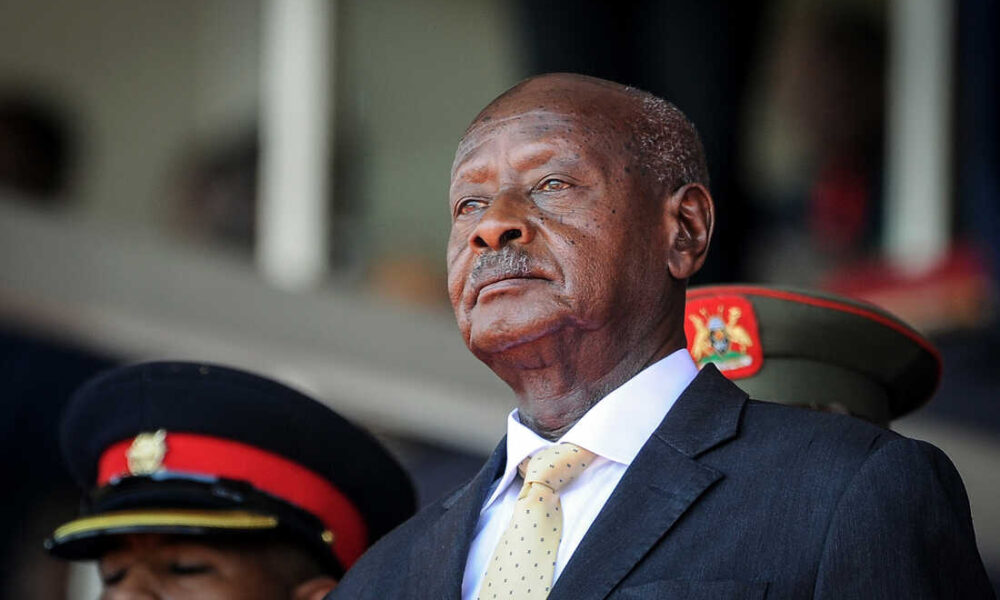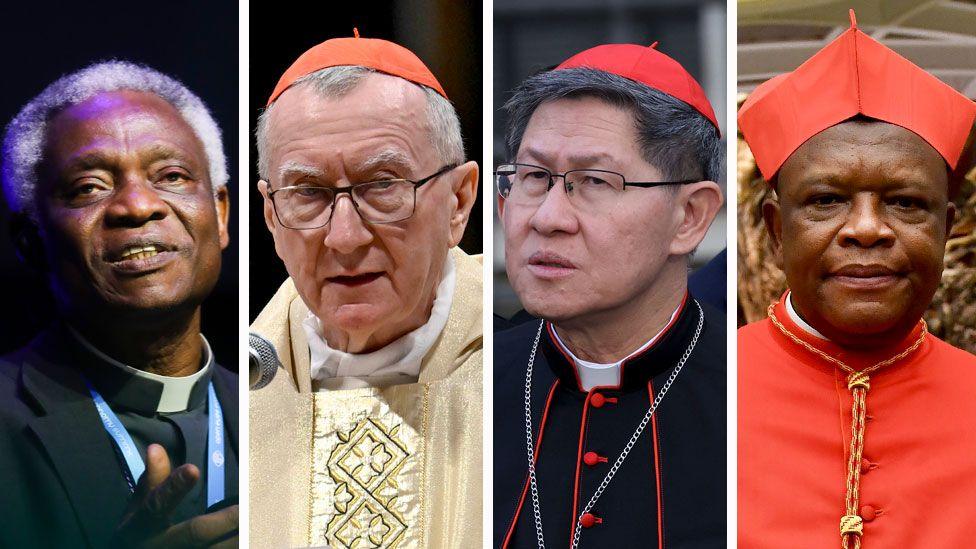
How the Museveni Family Systematically Looted a Nation » The Hoima Post –
This is not governance—it is grand theft disguised as politics.
For nearly four decades, Yoweri Museveni and his family have treated Uganda as their personal ATM, siphoning billions from public coffers while ordinary Ugandans struggle with poverty, unemployment, and deteriorating public services. The evidence is overwhelming: Uganda’s economy does not serve its citizens—it functions as a private slush fund for the first family and their cronies.
1. The Oil Curse: Museveni’s Family ATM
Uganda’s oil reserves, estimated at 6.5 billion barrels, should have been a national blessing. Instead, they have become a corruption goldmine for the Museveni clan.
TotalEnergies & CNOOC deals: Billions in oil contracts have been awarded under questionable conditions, with kickbacks flowing to Salim Saleh, Sam Kutesa, and Muhoozi-linked companies.
Pipeline scandals: The East African Crude Oil Pipeline (EACOP) has been marred by land-grabbing, inflated costs, and secret payoffs, all benefiting regime insiders.
Military protection racket: Oil fields are secured by Muhoozi’s Special Forces Command (SFC), ensuring zero transparency or oversight.
The result? Uganda’s oil wealth is stolen before it even reaches the market, while citizens endure displacement and environmental degradation.
2. The Banking Cartel: Controlling Uganda’s Financial System
Uganda’s financial sector serves as a money-laundering machine for the ruling elite.
Bank of Uganda scandals: The closure of Crane Bank, Teefe Bank, and others resulted in trillions of shillings vanishing, with Salim Saleh deeply implicated.
Uganda Development Bank (UDB): Now operates as a regime slush fund, issuing loans to Museveni-linked farms, factories, and shell companies.
Mobile money taxes: A direct extortion of the poor, orchestrated by Allan Matsiko (Muhoozi’s brother-in-law in intelligence).
The scheme is simple: Steal from the treasury, launder through banks, and stash the wealth abroad.
3. Land Grabbing: The Museveni Family’s Real Estate Empire
From Luweero to Karamoja to the Albertine oil fields, the Museveni family has seized land worth billions.
Janet Museveni’s “Ranching Schemes”: A cover for mass evictions, handing land to Salim Saleh’s military cronies.
Muhoozi’s Kisozi Ranch: Thousands of acres acquired under the pretext of “national security”.
Sam Kutesa’s mafia tactics: Forced acquisitions in Entebbe, Mukono, and Mbarara, expanding the family’s real estate empire.
This isn’t investment—it is organized land theft.
4. Ghost Workers, Ghost Projects, and Ghost Money
The regime thrives on fraudulent accounting and embezzlement.
Ghost soldiers: Over 20,000 fake names on the army payroll, controlled by Salim Saleh, while real soldiers remain unpaid.
Pandemic theft: COVID-19 relief funds mysteriously disappeared, with First Daughter Natasha Museveni’s companies securing dubious contracts.
Infrastructure fraud: Billions borrowed from China, yet roads crumble within months, as contracts are awarded to Museveni’s brother-in-law’s firms.
5. The Military Mafia: The Army as a Business Empire
Uganda’s military no longer serves as a defense force—it is a criminal enterprise controlled by the Museveni family.
Salim Saleh’s business army: The National Enterprise Corporation (NEC) and Luweero Industries act as fronts for arms deals, smuggling, and illicit kickbacks.
Muhoozi’s private militia: The Special Forces Command (SFC) controls illegal gold mines in Karamoja and Congo, funneling profits into Muhoozi’s offshore accounts.
UPDF ghost salaries: Over $300 million annually is siphoned through fake soldiers and inflated procurement contracts, all managed by Museveni’s relatives.
The army doesn’t protect Uganda—it exploits it.
6. The Foreign Aid Scam: How Donors Fuel Museveni’s Corruption
Western governments and NGOs claim to support democracy while indirectly funding dictatorship.
World Bank & IMF loans: Diverted immediately, masked by sham governance programs.
USAID & UK aid funds: Channeled into Museveni-linked NGOs run by Janet Museveni’s allies.
EU “democracy grants”: Distributed to regime-friendly activists who sanitize human rights abuses.
Foreign aid does not benefit Ugandans—it sustains Museveni’s theft.
7. The Family’s Offshore Billions: Hidden Wealth
While Ugandans suffer, the Museveni family enjoys extravagant lifestyles abroad.
Dubai real estate empire: Muhoozi owns multiple penthouses, while Janet Museveni enjoys luxury shopping in London under diplomatic immunity.
Swiss bank accounts: Sam Kutesa funneled millions through UN bribery schemes.
Shell companies in Panama, Mauritius, and Seychelles: Used to launder stolen wealth from oil, land, and aid fraud.
This is not personal wealth—it is stolen national property.
8. The Future of Looting: Muhoozi’s Takeover Plan
Museveni is grooming his son to ensure the continuation of this plunder.
Muhoozi’s “business tours”: A guise for extracting bribes from investors.
Militarized patronage: The UPDF is being restructured to guarantee Muhoozi maintains control over corruption networks.
Controlled opposition: Bobi Wine and other activists are allowed to protest, but genuine threats to the Museveni money machine are swiftly jailed or eliminated.
The plan is clear: Keep Uganda in chains, keep the family in power, and sustain the looting.
Conclusion: Uganda Is Not a Country—It’s a Crime Scene
The Museveni regime is not a government—it is a criminal syndicate. Every institution—banks, the military, the courts, and parliament—exists solely to facilitate theft.
But resistance is growing. From taxi drivers protesting extortionate taxes to whistleblowers exposing corruption, Ugandans are fighting back.
The international community must stop treating Museveni as a statesman. He is a thief. His family are thieves. Uganda deserves justice.
#MuseveniMustGo #UgandaLivesMatter #EndKleptocracy
What Can You Do to help Ugandans ?
Share this report all over .
Boycott companies funding the nusty regime.
Pressure your government to freeze Museveni’s offshore assets.
Amplify Ugandan voices, not dictatorship propaganda.
The looting must end.
https://hoimapost.co.ug/how-the-museveni-family-systematically-looted-a-nation/
https://hoimapost.co.ug/how-the-museveni-family-systematically-looted-a-nation/ , hoimapost.co.ug
https://hoimapost.co.ug/how-the-museveni-family-systematically-looted-a-nation/ , https://hoimapost.co.ug/how-the-museveni-family-systematically-looted-a-nation/ ,
hoimapost.co.ug , https%3A%2F%2Fhoimapost.co.ug%2Fhow-the-museveni-family-systematically-looted-a-nation%2F
News
Kampala’s Pursuit of Beauty Has turned non-motorized Namirembe Road into a Symbol of Neglect. » The Hoima Post –

By Wabusimba Amiri. In the heart of Uganda’s capital, a wave of enforcement under the “Keep Kampala Green” campaign has swept across the city. Hajjat Buzeki Sharifa the Kampala Capital City Authority (KCCA) Executive Director and her team have taken to the streets, cracking down on pedestrians found stepping onto green spaces. Arrests have been made and victims paraded before courts, while headlines may applaud the city’s efforts to protect its environment, the lived reality for most Kampala residents is far from green.
For the everyday pedestrian, street vendor, or traveler navigating the city’s crumbling infrastructure and chaotic transport systems, this campaign feels less like an environmental initiative and more like the criminalization of survival. In one alarming incident, a law enforcement officer pursuing a street hawker knocked over an innocent pedestrian. Such scenes are becoming disturbingly common, illustrating that the campaign’s focus on aesthetics is eclipsing the urgent need for structural reform. But the question remains: why are people walking on the grass in the first place?
Kampala’s roads are potholed, the drainage systems are open or entirely broken, and sidewalks are regularly overrun by boda bodas, taxis that have grown so rapidly and uncontrollably they now dominate urban mobility. These riders, faced with mounting traffic and no clear regulations, often mount pedestrian paths or spill into green spaces. As a result, pedestrians are left with no safe space to walk but the very lawns they are now being arrested for using.
Uganda, once known for its agricultural prowess and natural endowment, is now witnessing a sharp transition into a “Boda Boda Republic.” With youth unemployment on the rise and limited avenues for formal employment, many young Ugandans have turned to boda boda riding as their only viable source of income. It is unfair, even absurd, to ask the city’s jobless and desperate youth to observe order in a system that provides them no alternative path to survival.
Instead of punishing symptoms, KCCA must address the root causes. A city cannot enforce order while ignoring inequality. It cannot claim to promote greening while simultaneously allowing planning gaps and enforcement failures to flourish. More dangerously, it cannot continue to allow law enforcement officers to engage in heavy-handed tactics that endanger the very citizens they are meant to protect. Urban order must meet urban empathy. Law enforcement officers must be trained not only in how to enforce the law but also in how to interact with vulnerable populations in a humane and just manner.
Namirembe Road stands out as a perfect example of disconnect between urban vision and execution. Once celebrated as a pioneering, non-motorized zone for pedestrians and cyclists, it has since descended into an unregulated hub for boda boda stages and taxi loading zones. What was designed as a green and accessible public space has been overwhelmed by the very forces it sought to regulate. If a flagship street like Namirembe backed by funding, international attention, and strategic planning can fall into disrepair, then the rest of the city’s roads face an even grimmer reality.
The vision for a green Kampala should not merely focus on planting grass and arresting those who tread on it. It must include an urgent restructuring of the city’s informal transport sector, better urban planning, repair of key infrastructure, proper drainage systems, and protection of pedestrian walkways. Youth need meaningful opportunities in agriculture, innovation, and business not just another warning not to step on the grass.
Kampala’s transformation must begin with a commitment to fairness and dignity. The beauty of a green city is not in how many trees it plants or how neatly its lawns are mowed. True beauty lies in how well it treats its people. Winston Churchill once called Uganda the Pearl of Africa not because of its manicured lawns, but because of its rich natural and human potential. To realize that potential in Kampala, we must stop policing the grass and start cultivating justice. The city’s future lies not in the color of its gardens, but in the character of its governance.
Amiri Wabusimba is a diplomatic Scholar, Journalist, political analyst and Human Right activist. Tel: +56775103895 email: Wabusimbaa@gmail.com.
https://hoimapost.co.ug/kampalas-pursuit-of-beauty-has-turned-non-motorized-namirembe-road-into-a-symbol-of-neglect/
https://hoimapost.co.ug/kampalas-pursuit-of-beauty-has-turned-non-motorized-namirembe-road-into-a-symbol-of-neglect/ , hoimapost.co.ug
https://hoimapost.co.ug/kampalas-pursuit-of-beauty-has-turned-non-motorized-namirembe-road-into-a-symbol-of-neglect/ , https://hoimapost.co.ug/kampalas-pursuit-of-beauty-has-turned-non-motorized-namirembe-road-into-a-symbol-of-neglect/ ,
hoimapost.co.ug , https%3A%2F%2Fhoimapost.co.ug%2Fkampalas-pursuit-of-beauty-has-turned-non-motorized-namirembe-road-into-a-symbol-of-neglect%2F
News
Should a Convicted Cardinal Help Choose the Next Pope? » The Hoima Post –

By Alexander Luyima | Religious Scholar
The election of a new pope is meant to be a sacred, solemn process—a moment when the College of Cardinals seeks divine guidance to select the next leader of the 1.3 billion Catholics worldwide. But this time, the conclave is mired in controversy, as Cardinal Giovanni Angelo Vecchio, a man convicted of financial crimes, demands the right to vote—and even be voted for—despite his fall from grace.
The Unprecedented Scandal
Vecchio was once among the Vatican’s most powerful figures. But in 2020, Pope Francis stripped him of his cardinal privileges following an internal investigation. Then, in 2023, the Vatican’s criminal court delivered a historic blow: Vecchio was found guilty of embezzlement and fraud, and sentenced to five and a half years in prison—making him the first cardinal ever convicted by the Holy See’s own tribunal.
Yet, thanks to a pending appeal, Vecchio remains free, residing in a Vatican apartment while his legal battle drags on. Now, with the papal conclave approaching, he insists that an invitation to a 2022 meeting of cardinals somehow restored his full rights, including the ability to vote for the next pope.
Canon Law vs. Moral Authority
The Church’s legal experts are divided:
Some argue that unless explicitly reinstated, Vecchio’s 2020 removal by Pope Francis still stands.
Others claim that participation in official gatherings implies a tacit restoration of privileges.
But beyond the legal technicalities lies a deeper question: Should a convicted criminal—one found guilty by the Vatican’s own court—help elect the next Vicar of Christ?
“This isn’t just about rules; it’s about credibility,” says Dr. Elena Rossi, a canon law specialist. “The Church has spent years trying to rebuild trust after scandals. Allowing a felon in the conclave would send a disastrous message.”
A Wider Pattern of Scandal
Vecchio isn’t the only controversial figure lingering in the Vatican’s halls.
Two other cardinals, previously found guilty of sexual abuse, are expected to attend pre-conclave discussions—though they cannot vote due to age restrictions.
Critics argue that their mere presence undermines the moral weight of the process.
“The optics are terrible,” notes Father Thomas Brennan, a reform advocate. “If the Church truly wants to cleanse itself, it must start by keeping those who betrayed its trust far from the seat of power.”
What Happens Next?
The Vatican has remained silent so far, but pressure is mounting.
1. Will Pope Francis issue a definitive ruling?
2. Will the College of Cardinals reject Vecchio’s claim?
3. Or will this set a dangerous precedent for future conclaves?
One thing is clear: The world is watching—and so are the faithful.
Join the Debate
Should convicted clergy have any role in selecting the next pope? Share your thoughts below with #VaticanConclave #ChurchAccountability #CatholicReform.
Follow for further analysis as this pivotal moment in Church history unfolds.
https://hoimapost.co.ug/vatican-in-crisis-should-a-convicted-cardinal-help-choose-the-next-pope/
https://hoimapost.co.ug/vatican-in-crisis-should-a-convicted-cardinal-help-choose-the-next-pope/ , hoimapost.co.ug
https://hoimapost.co.ug/vatican-in-crisis-should-a-convicted-cardinal-help-choose-the-next-pope/ , https://hoimapost.co.ug/vatican-in-crisis-should-a-convicted-cardinal-help-choose-the-next-pope/ ,
hoimapost.co.ug , https%3A%2F%2Fhoimapost.co.ug%2Fvatican-in-crisis-should-a-convicted-cardinal-help-choose-the-next-pope%2F
News
The Looting, Lies, and Fear of a Dictator Exposed » The Hoima Post –

By Alexander Luyima
The Fall from Liberation to Paranoia
In March 1987, Yoweri Museveni—fresh from seizing power—could still look Ugandans in the eye. His convoy? Just six cars. As he drove past Baganda Bus Park, he stood boldly through the sunroof, waving at citizens. When his aide, Lt. Col. Serwanga Lwanga, warned him to sit down for safety, Museveni scoffed:
“Gwe Serwanga, nvaako – nabba kyaani?”
(“You Serwanga, leave me alone—whose property have I stolen to be shot?”)
Fast forward to 2025: a battalion of armored trucks, drones, counter-assault teams, and over 30 vehicles now shields him. Why? Because today, Museveni has stolen not just property—but an entire nation.
The Evidence of Loot: From Peasant Revolt to Kleptocracy
1. The Land Grabs & Family Empire
The 9,000-Acre Namanve Land Scandal: In 2021, the government illegally evicted over 4,000 families to hand prime land to Museveni’s brother, Gen. Salim Saleh, and Chinese investors. (Daily Monitor, 2021)
The Mabira Forest Giveaway: Despite national outrage, Museveni’s regime repeatedly attempted to parcel out protected forest land to sugar tycoons linked to his family. (The Observer, 2023)
2. The Oil Mafia & Shadow Accounts
Uganda’s Oil: A Family Cash Cow – In 2020, Global Witness exposed how Museveni’s son-in-law, Edwin Karugire, and other regime elites secretly controlled oil blocks through offshore shell companies. (Global Witness, 2020)
The $10 Billion Oil Debt Mystery – Despite multiple deals signed, billions remain unaccounted for, with no public transparency on beneficiaries. (Africa Intelligence, 2024)
3. Military Corruption & Ghost Soldiers
The $500 Million “Ghost Soldiers” Scandal: In 2022, Parliament revealed how billions meant for army salaries vanished, with thousands of “ghost soldiers” on payroll while real soldiers starved. (ChimpReports, 2022)
Museveni’s Private Militias: The Special Forces Command (SFC)—loyal only to him—receives $300 million annually, while public hospitals run out of basic medicines. (The Independent, 2023)
Why Museveni Fears Ugandans Now
1. The Betrayal of Comrades
Major Kazooora, a hero of the 1986 Masindi assault, was denied a state funeral for exposing corruption in his memoirs.
Other NRA veterans like Col. Kizza Besigye and Gen. David Sejusa have faced torture, exile, or silencing for demanding accountability.
2. The Rise of a Police State
Over 1,200 political prisoners languish in jail—including National Unity Platform (NUP) supporters. (Human Rights Watch, 2024)
Journalists such as Kakwenza Rukirabashaija are abducted and tortured for criticizing Museveni’s family. (Amnesty International, 2023)
3. The Youth Revolt
76% of Ugandans are under 30—and they are unemployed, angry, and online.
#MuseveniMustGo trends weekly despite the regime’s censorship and surveillance.
The Final Lie: “Liberator” Turned Prison Warden
Museveni once declared:
“The problem of Africa is leaders who overstay.”
Yet 39 years later, he clings to power—rigging elections, killing protesters, and looting billions while Ugandans suffer.
The People’s Verdict
We remember Kazooora.
We expose the looters.
We reject fear.
Museveni’s walls of security won’t hide his crimes forever.
#MuseveniIsALooter #UgandaIsBleeding #KazoooraWasRight #YouthArise #EndTortureInUganda #OilMoneyStolen #LandGrabsExposed #MuseveniMustGo
Spread this. Share this. The truth will win.
https://hoimapost.co.ug/from-six-cars-to-a-battalion-the-looting-lies-and-fear-of-a-dictator-exposed/
https://hoimapost.co.ug/from-six-cars-to-a-battalion-the-looting-lies-and-fear-of-a-dictator-exposed/ , hoimapost.co.ug
https://hoimapost.co.ug/from-six-cars-to-a-battalion-the-looting-lies-and-fear-of-a-dictator-exposed/ , https://hoimapost.co.ug/from-six-cars-to-a-battalion-the-looting-lies-and-fear-of-a-dictator-exposed/ ,
hoimapost.co.ug , https%3A%2F%2Fhoimapost.co.ug%2Ffrom-six-cars-to-a-battalion-the-looting-lies-and-fear-of-a-dictator-exposed%2F




